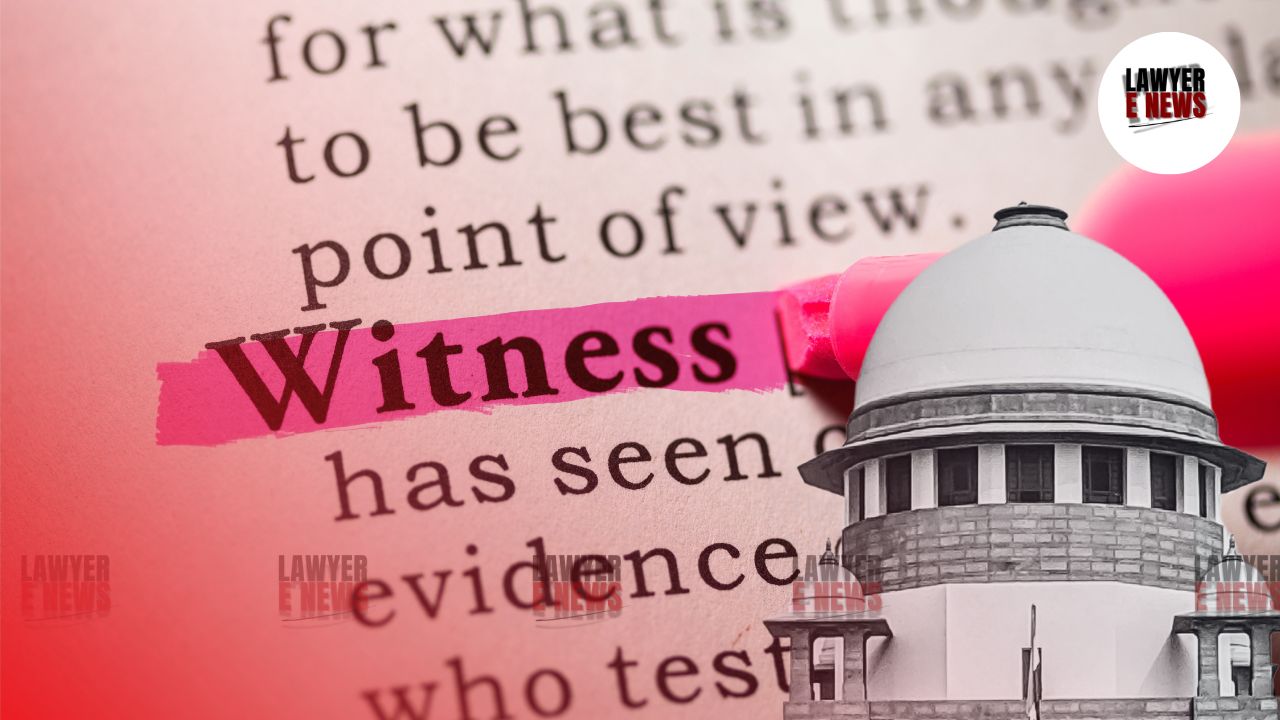-
by Admin
15 February 2026 5:35 AM



"The Trial Court has the discretion to decide Section 319 CrPC applications based on examination-in-chief, but cross-examination may be awaited depending on the circumstances," – Supreme Court of India On October 18, 2024, the Supreme Court of India in Asim Akhtar v. State of West Bengal & Anr., Criminal Appeal No. ______ of 2024 (arising out of SLP (Crl.) No. 12292 of 2022), restored the acquittal of the appellant, Asim Akhtar, and set aside the order of the Calcutta High Court. The case primarily revolved around the interpretation of Section 319 of the Code of Criminal Procedure (CrPC), specifically whether a Trial Court is required to decide an application under this provision based solely on the examination-in-chief without waiting for cross-examination.
Interpretation of Section 319 CrPC
The central legal question in this case was whether the High Court was correct in setting aside the Trial Court’s acquittal order and directing it to decide an application under Section 319 CrPC (which allows a court to summon additional accused) before proceeding with the trial. The High Court had relied on a misreading of the Constitution Bench judgment in Hardeep Singh v. State of Punjab [(2014) 3 SCC 92], concluding that the Trial Court was obligated to decide the application under Section 319 CrPC based on the examination-in-chief alone.
The case originated from an FIR lodged on October 11, 2017, alleging that Asim Akhtar attempted to kidnap the complainant (respondent no. 2). Charges were filed under Sections 366, 323, 506(II) of the Indian Penal Code (IPC) and Section 25(1)(B)(a) of the Arms Act, 1950. During the trial, the examination-in-chief of three prosecution witnesses, including the complainant, was recorded, but they repeatedly failed to appear for cross-examination despite summons and adjournments.
Subsequently, the complainant filed an application under Section 319 CrPC to summon additional accused (the appellant's parents). However, the Trial Court insisted on conducting cross-examination before deciding on the application. After continued non-appearance by the witnesses, the Trial Court closed the evidence and acquitted the appellant under Section 232 CrPC due to a lack of admissible evidence.
The High Court set aside this acquittal, directing the Trial Court to decide the Section 319 CrPC application before proceeding with the trial.
Court’s Observations on Section 319 CrPC
The Supreme Court found that the High Court had misinterpreted the Constitution Bench ruling in Hardeep Singh. Justice Vikram Nath, writing for the bench, clarified that the judgment did not mandate a Trial Court to decide a Section 319 CrPC application solely based on examination-in-chief. Instead, it provided that a Trial Court has the discretion to decide whether to wait for cross-examination or proceed with the application based on examination-in-chief alone.
"Section 319 CrPC Does Not Mandate a Mini-Trial"
The bench emphasized that Section 319 CrPC does not require a mini-trial before summoning additional accused. The trial judge has the discretion to assess the sufficiency of the examination-in-chief and decide whether to summon additional accused without waiting for cross-examination. However, in the present case, the Trial Court's decision to wait for cross-examination was justified, given the complainant’s repeated non-appearance.
Trial Court’s Acquittal Based on "No Evidence" Justified
The Supreme Court also upheld the Trial Court's decision to acquit the appellant under Section 232 CrPC, which allows for acquittal in cases where no evidence has been presented against the accused. Since the prosecution witnesses failed to present themselves for cross-examination, their examination-in-chief alone was not admissible evidence, and thus the Trial Court was justified in closing the evidence and acquitting the accused.
The Supreme Court set aside the Calcutta High Court's order and restored the acquittal of Asim Akhtar, stating that the High Court erred in requiring the Trial Court to decide the Section 319 CrPC application before cross-examination. The discretion to decide such applications lies with the Trial Court, and there was no mandatory requirement to dispose of the application solely based on examination-in-chief.
Key Takeaways from the Judgment
Section 319 CrPC does not mandate summoning additional accused solely on the basis of examination-in-chief. The Trial Court has the discretion to wait for cross-examination if it deems it necessary.
No Mini-Trial for Section 319 CrPC Applications: The Court reiterated that deciding an application under Section 319 CrPC should not become a mini-trial. The Court must evaluate the evidence at hand (even examination-in-chief) to decide whether additional accused should be summoned, but it is not bound to wait for cross-examination.
Role of Public Prosecutor vs. Complainant: The Court noted that the complainant and their counsel have a limited role in a state-conducted prosecution, and they cannot insist on dictating the trial's course, especially when the Public Prosecutor does not support their stance.
Closure of Evidence and Acquittal: In situations where prosecution witnesses fail to present themselves for cross-examination despite repeated opportunities, the evidence may be closed, and an acquittal under Section 232 CrPC may be justified.
Date of Decision: October 18, 2024
Case Title: Asim Akhtar v. State of West Bengal & Anr.
